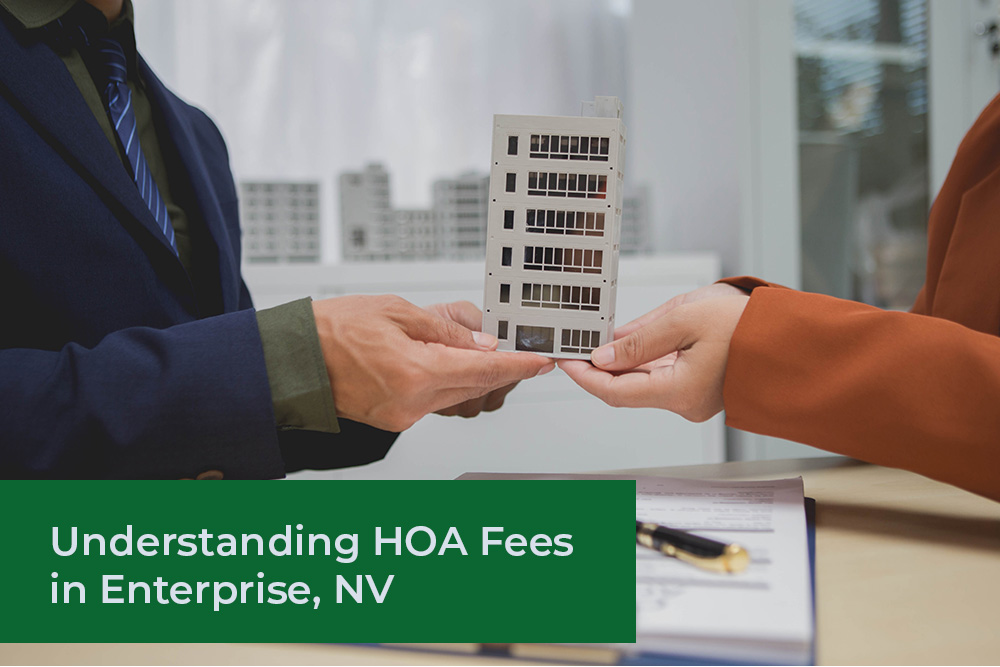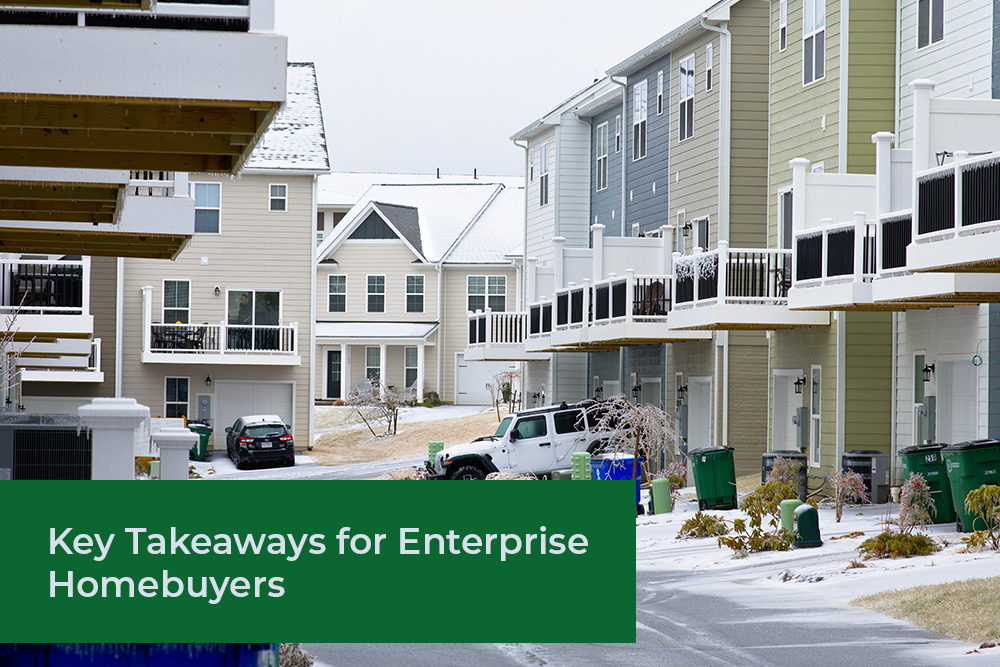Purchasing a home in Enterprise, Nevada, is an exciting prospect. This flourishing community, nestled in the vibrant Las Vegas Valley, offers spacious homes, excellent amenities, and a desirable suburban lifestyle. As you begin your home search and consider financing options, it’s easy to focus solely on the mortgage principal and interest. However, a truly savvy homebuyer understands that the total cost of homeownership extends beyond just your loan payment. Two crucial, often significant, ongoing expenses that must be factored into your budget are property taxes Enterprise NV and Homeowners’ Association (HOA) fees.
Ignoring these critical costs can lead to financial surprises and budgeting challenges down the road. For homebuyers and homeowners in Enterprise, understanding how these fees are determined, what they cover, and their impact on your overall affordability is essential for a smooth and sustainable homeownership journey. At Drennen Home Loans, we believe in empowering our clients with comprehensive knowledge, ensuring you’re fully prepared for all aspects of buying a home in Enterprise.
Understanding Property Taxes in Enterprise, NV

Property taxes are an unavoidable part of homeownership, serving as a vital source of revenue for local governments. These funds help finance essential public services that benefit the entire community, such as schools, road maintenance, public safety (police and fire departments), parks, and libraries. In Enterprise, as an unincorporated community within Clark County, your property taxes contribute directly to these county-level services.
How are Property Taxes Determined in Clark County/Enterprise?
The calculation of property taxes in Nevada, including the Enterprise area, generally involves two primary components: the assessed value of your property and the local tax rate.
- Assessed Value:
- Your property’s assessed value is determined by the Clark County Assessor’s Office. This value is a specific portion of the property’s overall taxable (market) value. The assessor’s role is to fairly and uniformly appraise properties to establish this value for tax purposes.
- Nevada also has important constitutional provisions that help provide stability for homeowners. These measures limit how much the taxable value of an owner-occupied primary residence can increase each year. This cap helps prevent sudden, steep increases in property tax bills, offering a degree of predictability for homeowners. For other types of properties, different caps on annual increases may apply.
- Tax Rate (Mill Levy):
- The tax rate is set by various local taxing entities, including the county itself, school districts, and sometimes special improvement districts that provide specific services within a defined area.
- These rates are often expressed as a value per hundred or per thousand dollars of assessed valuation. The combined rate from all applicable entities determines the overall tax rate for a specific property.
- It’s worth noting that these rates can vary slightly even within Enterprise, depending on which specific service districts a property falls under.
Your annual property tax bill is essentially a product of your property’s assessed value multiplied by the applicable tax rate. It’s a fundamental part of local budgeting that ensures essential community services are funded.
When are Property Taxes Paid in Enterprise?
In Clark County, property taxes are typically paid in installments throughout the year. While exact due dates can be found on official county websites, payments are generally due a few times annually. Many homebuyers find it convenient to have their property taxes included in their monthly mortgage payment. This is handled through an escrow account, where your lender collects a portion of your estimated annual tax bill each month. The lender then pays the taxes on your behalf directly to the county when they are due, simplifying your budgeting and ensuring timely payments.
Why Property Taxes Matter to Your Mortgage:
Property taxes are a critical component of your total monthly housing expense. They are typically included in what’s known as your PITI payment (Principal, Interest, Taxes, Insurance). Lenders rigorously factor these taxes into your debt-to-income ratio (DTI) during the mortgage qualification process. A higher annual tax bill translates to a higher required monthly housing payment, which directly influences how much you may qualify to borrow for your home in Enterprise. Therefore, understanding these taxes upfront is key to accurate budgeting and securing the right home loan in Enterprise, NV.
How to Find Enterprise Property Tax Information:
For the most accurate and up-to-date property tax information for any specific address in Enterprise or anywhere else in Clark County, it’s always best to consult the Clark County Assessor’s Office website and the Clark County Treasurer’s Office website. These official governmental resources allow you to search by address or parcel number to view current assessments, historical tax data, and payment statuses.
Understanding HOA Fees in Enterprise, NV
Enterprise is well-known for its thoughtfully planned communities, many of which feature gated entrances, resort-style amenities, and meticulously maintained common areas. These characteristics often mean that homes within Enterprise are part of a Homeowners’ Association (HOA). An HOA is a legal entity established to manage and maintain the common elements of a planned community and to uphold certain standards and rules for all residents. If you purchase a home within an HOA-governed community in Enterprise, membership is typically mandatory, and with it comes the obligation to pay regular HOA fees.
Why Do HOAs Exist in Enterprise?
HOAs are prevalent in Enterprise due to the nature of its residential development, which frequently includes master-planned communities designed to offer a cohesive and amenity-rich living experience. These associations are crucial for:
- Maintaining Common Areas: This includes the upkeep of community parks, green spaces, clubhouses, fitness centers, swimming pools, tennis courts, and walking trails – all features that significantly enhance the appeal and livability of the community.
- Preserving Property Values: By enforcing community-wide standards regarding property appearance (such as exterior paint colors, landscaping requirements, or fence styles), HOAs help ensure a consistent aesthetic. This collective effort contributes to maintaining and often increasing property values for all homeowners within the association.
- Providing Shared Amenities: Many Enterprise HOAs offer exclusive amenities that would be impractical or exceedingly expensive for individual homeowners to maintain on their own. These shared facilities foster a desirable lifestyle and a strong sense of community.
- Handling Services for Common Areas: In some communities, HOA fees may cover specific utilities for common areas, lighting, enhanced security measures (especially for gated communities), or even certain aspects of trash collection.
What Do HOA Fees Cover?
The specific services and amenities covered by HOA fees can vary considerably between different communities in Enterprise, depending on the scale and offerings of the association. However, common inclusions generally consist of:
- Maintenance: This is a primary component, covering landscaping services for common areas, upkeep of community-owned roads (if private), and general maintenance of shared facilities.
- Utilities for Common Areas: Funds are often allocated for utilities such as water and electricity for clubhouses, pools, and streetlights within the community.
- Insurance: HOAs typically carry master insurance policies that cover common property elements like clubhouses, community pools, and other shared structures. This is separate from your individual homeowner’s insurance policy, which covers your specific dwelling.
- Amenities Access: Your fees grant you access to and maintenance of community amenities such as swimming pools, gyms, clubhouses, sports courts, and various other recreational facilities.
- Security: For communities with controlled access, a portion of the fees may contribute to the maintenance of gates, security personnel, or surveillance systems.
- Reserves: A vital part of your regular HOA fees is allocated to a reserve fund. This fund is prudently set aside for anticipated large-scale repairs or major capital improvements in the future, such as repaving community roads, replacing a clubhouse roof, or upgrading pool equipment. A well-funded reserve helps prevent sudden financial burdens on homeowners.
How are HOA Fees Set and Paid?
HOA fees are determined by the association’s board of directors, who establish an annual budget that covers the estimated operating expenses and necessary contributions to the reserve fund. Fees are most commonly collected on a monthly or quarterly basis.
Impact on Your Budget and Mortgage Qualification:
Just like property taxes, HOA fees represent a non-negotiable and recurring monthly cost that significantly impacts your overall housing expenses. When you apply for a home loan in Enterprise, NV, lenders will carefully factor these fees into your debt-to-income (DTI) ratio. Even if your mortgage principal and interest payment seems manageable, substantial HOA fees can push your DTI ratio beyond acceptable limits, potentially affecting the loan amount you qualify for. It is absolutely crucial to view HOA fees as a fixed, mandatory expense, similar to a utility bill or a loan payment.
Covenants, Conditions, and Restrictions (CC&Rs):
Beyond the financial aspect of fees, every HOA-governed community operates under a set of rules known as Covenants, Conditions, and Restrictions (CC&Rs). These are legal documents that outline the rules and regulations governing what homeowners can and cannot do with their property and how common areas are used. CC&Rs can cover a wide range of topics, including exterior paint colors, landscaping requirements, allowable fence types, parking regulations, and even pet policies. It is paramount that you obtain and thoroughly review the CC&Rs for any HOA community you are considering in Enterprise before making an offer, as these rules will directly influence your lifestyle and property choices.
Potential for Special Assessments:
While a well-managed HOA maintains a reserve fund to cover anticipated major repairs, sometimes unexpected, large-scale expenses can arise (such as emergency structural repairs or significant unbudgeted infrastructure issues) that are not fully covered by the existing reserves. In such situations, the HOA may vote to levy a “special assessment,” which is a one-time, additional charge to all homeowners. While less common in associations with robust reserve planning, it’s a possibility that homebuyers should be aware of.
The Combined Impact on Your Homebuying Budget in Enterprise

For homebuyers in Enterprise, it’s critical to understand that your total monthly housing cost is a sum of several components: your mortgage principal and interest (P&I), plus property taxes Enterprise NV (T), homeowner’s insurance (I), and any applicable HOA fees (HOA). This comprehensive figure is often referred to as PITI + HOA.
- Non-Negotiable Costs: Both property taxes and HOA fees are mandatory and ongoing expenses. They are fixed costs that must be budgeted for each month.
- Significant Budget Impact: Depending on the home’s value, the specific tax rates, and the amenities offered by the community, these costs can add a substantial amount to your monthly housing expense. This directly impacts your overall affordability and what you can comfortably pay each month.
- Mortgage Qualification: Lenders factor all these recurring costs into your mortgage qualification. A higher combined property tax and HOA fee will result in a higher total monthly housing payment, which will directly influence the maximum loan amount you can qualify for.
Therefore, when you’re looking at homes in Enterprise, always inquire about the estimated annual property taxes and the monthly (or quarterly) HOA fees. These details are just as important as the listing price itself.
Finding Information for Specific Properties in Enterprise
- Property Tax Information: For current and historical tax data on a specific property, you can typically utilize the search tools available on the official Clark County Assessor’s and Treasurer’s websites. Searching by address or parcel number will provide you with relevant tax details.
- HOA Disclosure Packet: When you enter into a purchase agreement for a home located within an HOA community, the seller is generally required to provide you with a comprehensive HOA disclosure packet. This vital document includes the HOA’s financial statements, budget, recent board meeting minutes, the full set of CC&Rs, and information on any pending special assessments or litigation. Diligently reviewing this packet is absolutely essential.
Key Takeaways for Enterprise Homebuyers

- Don’t Overlook These Costs: Property taxes and HOA fees are significant, ongoing expenses that are fundamental to your homeownership budget.
- Always Verify Exact Amounts: For the most accurate figures, never rely solely on listing estimates. Always consult official county resources for property taxes and obtain the official HOA disclosure packet for fees and rules.
- Understand the HOA’s Financial Health: When reviewing HOA documents, pay close attention to the association’s budget and reserve study to ensure it is well-managed and adequately funded for future maintenance and repairs.
- These Impact Your Mortgage Qualification: Remember that higher taxes and HOA fees mean a higher total monthly housing cost, which will directly influence the maximum loan amount you can qualify for.
How Drennen Home Loans Helps You Navigate These Costs

At Drennen Home Loans, we are more than just mortgage lenders Enterprise; we are your dedicated financial guides throughout the homebuying process.
- Accurate Affordability Calculations: During your pre-approval process, we meticulously factor in estimated property taxes, HOA fees, and homeowner’s insurance costs to provide you with a realistic and comprehensive understanding of your total monthly housing payment. This ensures you know your true purchasing power in Enterprise from the very beginning.
- Guidance on Understanding Documents: We can help you understand the implications of property tax assessments and advise you on what to look for when reviewing crucial HOA disclosure packets, empowering you to make a well-informed decision.
- Tailored Loan Options: Our diverse portfolio of loan products means we can work with you to find a financing solution that not only meets your borrowing needs but also comfortably accommodates all your housing costs, including taxes and fees.
- Local Enterprise Expertise: Our team’s deep knowledge of the Enterprise real estate market, including its specific tax structures and the characteristics of its prevalent HOA communities, allows us to provide hyper-local, relevant advice that national lenders simply cannot offer.
Conclusion
Understanding property taxes Enterprise NV and HOA fees Enterprise Nevada is a critical step towards confident and sustainable homeownership in this desirable community. These ongoing costs play a significant role in your monthly budget and your overall mortgage qualification. By taking the time to research and comprehend these elements, you can avoid surprises and make a well-informed decision that aligns with your financial goals.
Partner with Drennen Home Loans, your trusted local experts, to navigate these complexities. We’re here to provide the insights, personalized guidance, and the right home loan solution to make your dream of owning a home in Enterprise a reality, ensuring you’re prepared for every financial aspect of your new life.
Get the Keys to Your New Home in Enterprise, Let’s Start Today
Whether you’re moving across town within Enterprise or making a big move to this desirable community, Drennen Home Loans is here to guide you home. Our Enterprise team is standing by to answer your questions, provide personalized quotes, and help you move forward on your homeownership journey.
Call us at (702) 879-5626 or Fill out our contact form to schedule your free consultation.








